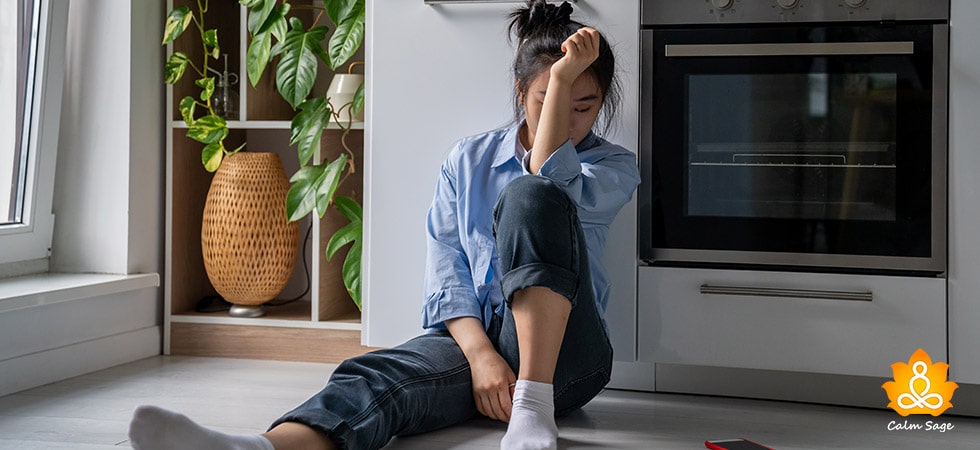Signs You Might Be Overfunctioning in Your Relationship (And How to Stop)

Matching step for step in this intricate dance of relationship is never easy. If you miss a beat, you can get caught up in a tangle of overwhelming feelings. If you’re not aware, then you might end up leading the dance on your own, and what is life when it’s unbalanced? This imbalance in relationships can look a lot like overfunctioning.
But what exactly does overfunctioning mean? How can it affect your well-being?
Well, when we talk about overfunctioning in a relationship context, it’s when you take on excessive responsibility, often as compensation for the underfunctioning or the passivity of your partner or the other person in a relationship — work, family, or friends. It becomes something like juggling all the responsibilities of a relationship while your partner watches the show with a bowl of popcorn.
So, do you feel like you’re overfunctioning in your relationship? Let’s check out the signs of over functioning and how you can break free from this toxic loop.
Signs You’re Overfunctioning
If you feel like you’ve been overfunctioning in your relationships, then here are some signs you need to watch out for;
- You have a constant need to please. You go above and beyond to meet others’ needs, neglecting yours along the way
- You need to control everything. You are the one who insists on planning all events and making all decisions in your relationship
- You avoid conflicts all the time. Instead of addressing your relationship issues, you sweep them under the rug, presenting harmony, but in reality, avoiding conflicts
- You struggle with excessive worrying. Your mind is never quiet and always running on anxiety. You anxiously think about your relationship and the future
- You take all your partner’s problems on yourself. You almost feel compelled to solve their issues for them, even if it comes at the expense of your health and well-being
- You are always exhausted. The toll of overfunctioning in your relationship leaves you emotionally drained and physically tired all the time
- You struggle with boundaries. You can’t set limits or boundaries in your relationships, often out of fear of toppling the delicate balance you have in your relationship
Here, let’s understand this with an example;
You always go out of your way to make your partner happy. You cook for them, rearrange your plans to suit theirs, and skip social events to accommodate your partner when they aren’t in the mood to mingle with others. Despite it all, you feel underappreciated and overwhelmed by working tirelessly – mentally and emotionally.
What Causes Overfunctioning in Relationships?
Now, if you’re wondering what causes overfunctioning in relationships, then here are some common culprits you need to understand;
1. Low Self-Esteem
The need to overcompensate can be a way to seek approval and validation, especially when you believe your self-worth is tied to how you please others. This lack of self-esteem can make you take on more responsibilities, even when you don’t have to.
2. The Fear of Abandonment
If you fear the idea of not being needed or valued anymore in your relationships, then this fear can also trigger overfunctioning. You might believe that you need to secure your love and connection with your partner, parent, or friend, and to do this, you overfunction and take on excessive amounts of responsibilities.
3. Unhealthy Relationships
There could be previous relationship experiences or learned behaviors you’ve developed that can make you overcompensate and lead you to adopt overfunctioning patterns in your adult relationships.
4. Lack of Communication
Another reason for overfunctioning in relationships can be a lack of communication. When there isn’t healthy communication between partners or friends, it can lead to misunderstandings, creating an environment where overfunctioning becomes a trauma response or coping mechanism.
The Impact of Overfunctioning in Relationships
Overfunctioning might sound normal to you, especially when you’re the active partner or participant in a relationship, however, it always comes with a cost to your mental health. The constant pressure to do more than you’re required to can cause physical and emotional fatigue. Over time, the imbalance in your relationship can become a breeding ground for resentment, creating a toxic relationship.
Overfunctioning also involves prioritizing others’ needs before your own. This behavior can chip away at your sense of self, causing you to lose your self-identity.
Moreover, the constant worry about your relationship’s future, stability, and your partner’s needs can turn into chronic anxiety and stress. Long-term exposure to anxiety and stress can affect your mental peace, emotional health, and physical well-being.
Let’s take a look at the ways you can stop overfunctioning in relationships.
How to Stop Overfunctioning?
With the right help and guidance, you can stop overfunctioning in your relationships. Here are some tips to help you out;
1. Set Boundaries
I know it can be tiring to set your limits, but you need to define your needs and limits with your partner. Communicate your needs to your partner, and tell yourself that setting boundaries isn’t selfish. It’s one of the most important aspects of having a balanced and happy relationship.
2. Take Care of Yourself
Take time regularly to care for yourself. You are not your relationship. It’s OK to take a break from it all and give yourself the time and attention you need. You can read a book, go for a walk, try a new hobby, or just take part in activities that bring you joy.
3. Encourage Taking Responsibility
Make sure your partner gets the space to take responsibility for their share of the relationship. Again, it’s not just you in the relationship, right? Your partner needs to contribute their share as well. This encouragement to take responsibility can empower your partner and you to create a healthier relationship dynamic.
4. Communication is Key
Ensure that you talk openly about your feelings, concerns, and expectations with your partner. Having open and honest communication in the relationship is important for maintaining a healthy and well-balanced life. This communication can also create understanding and encourage support in the relationship.
5. Prioritize Yourself for Once
Whenever you feel like you’re doing more than you’re responsible for, pause, and remind yourself that you’re not the only one responsible for the success (or failure) of your relationship. A relationship is a joint effort and your partner is equally responsible for their needs. Try to prioritize yourself for once in your relationship.
Seek Help and Support
If your overfunctioning pattern continues, then consider seeking help and support from a professional. A therapist or counselor can offer you insights and strategies to help you let go of your overcompensating needs in your relationship and give you tools to carry on a healthy and balanced relationship.
Wrapping Up…
It’s not easy to break free from the toxic loop of overfunctioning in relationships, but it’s equally important to do so to have balanced relationships. When you recognize the signs of overfunctioning, understand the causes of this behavior, and engage in practical ways to stop overfunctioning in relationships, you can take control of your mental peace and well-being.
It’s not about being selfish and doing less; it’s about doing what’s right for you and your partner in the relationship.
I hope this article helped you understand what is overfunctioning in relationships and how to stop this behavior. Let me know your thoughts in the comments below.
Take Care!




















